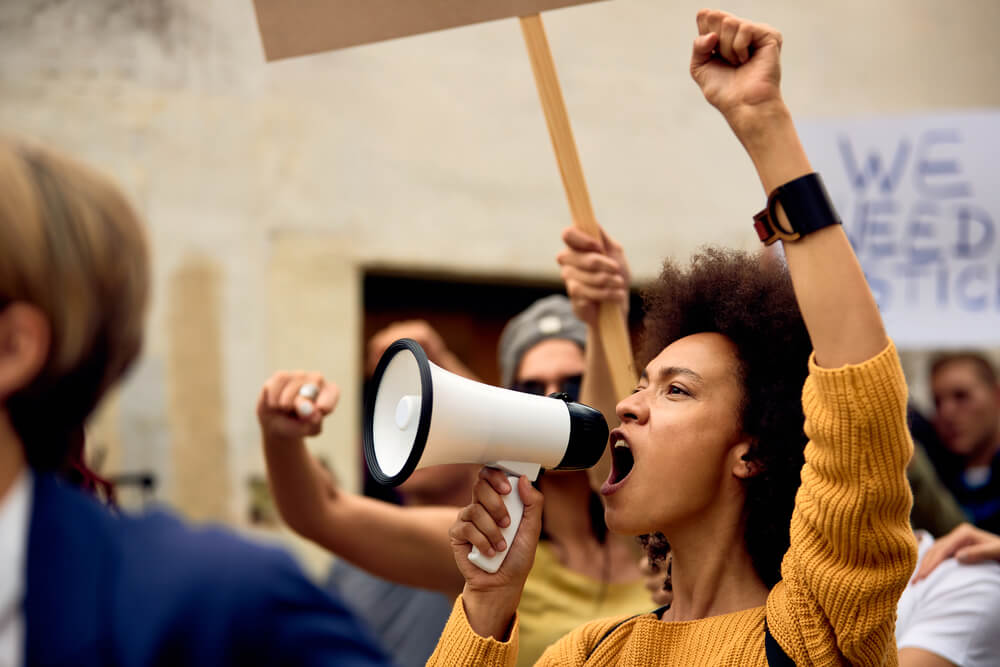

The Act explained.
The Public Order Act 2023 came into in force on the 3rd May 2023, updating the 1986 Public Order Act as amended by the Police, Crime, Sentencing and Courts Act 2022.
The Act introduces new criminal offences and extends the powers available to the police and the secretary of state to control and prohibit demonstrations that cause or might cause disruption.
The legislation is a direct response to the increase in disruptive protests from groups such as Just Stop Oil, Insulate Britain, Extinction Rebellion, Animal Rebellion and those opposing HS2. The government says the act provides:
‘sensible and proportionate measures designed to allow the police to better balance the rights of protesters and the public’.
The government claims overwhelming public support for the provisions of the act. It also claims the act is compatible with rights to freedom of expression, assembly and association enshrined in the European Convention on Human Rights.
Others have expressed concern that the new act effectively criminalises legitimate protest or redefines the right to protest with one commentator stating that the right to protest is now nothing more than ‘a privilege that exists at the discretion of the police’.
With the act on the statute book for only a matter of days, sections of it were seen in action at the King’s Coronation on the 6th May resulting in some well publicised and controversial arrests taking place and Scotland Yard later expressing ‘regret’ at some of the actions of their officers.
The act explained:
New Criminal Offences
Sections 1 and 2 of the act introduce new offences of ‘locking on’ and going equipped to ‘lock on’ and is designed to criminalise the practice of protesters attaching themselves to each other, buildings or objects in order to cause disruption.
The ‘locking on’ offence carries a maximum penalty of 6 months imprisonment, an unlimited fine or both. The maximum penalty for going equipped to lock on is an unlimited fine.
Sections 3, 4 and 5 create new offences related to tunnelling and are targeted directly at HS2 protesters. New offences of causing serious disruption by tunnelling and causing serious disruption by being present in a tunnel are punishable by a maximum penalty of 3 years imprisonment an unlimited fine or both. It is a defence to establish that one had a reasonable excuse for creating or participating in the creation of a tunnel.
An offence of being equipped for tunnelling is punishable by a maximum of 6 months imprisonment an unlimited fine or both.
Section 6 introduces a new offence of obstructing major transport works. The maximum penalty is 6 months imprisonment an unlimited fine or both.
Section 7 creates a new offence of interference with key national infrastructure and covers behaviour which prevents or significantly delays the operation of infrastructure such as airports, railways, printing presses and oil and gas works.
The maximum penalty is 12 months imprisonment, an unlimited fine or both.
Extending the police powers to stop and search
Sections 10 and 11 extend the powers of the police to stop and search individuals and seize objects that may be used in the commission of a protest-related offence. It permits a police officer of or above the rank of inspector to authorise stop and search without the need for suspicion, amending Section 1 of the Police and Criminal Evidence Act 1984. A stop and search can now be authorised whether or not the constable has any grounds for suspecting that the person is carrying a prohibited object. This power is exercisable anywhere within a specific locality within the officer’s police area, and for no longer than 24 hours.
Introducing Serious Disruption Prevention Orders
Sections 20 – 29 in part 2 of the act introduce serious disruption prevention orders (SDPOs) a preventative court order designed to place prohibitions on, or requirements of, a person to prevent them from causing serious disruption.
Examples of orders might be to prohibit a person from being in a particular place, being with particular people, having articles in their possession or using the internet to facilitate or encourage a person to commit a protest related offence.
Orders can be applied to people over 18 convicted of a protest related offence if on a previous occasion within the relevant time period:
- They were convicted of another protest related offence
or - They committed a protest related breach of an injunction for which the person was found in contempt of court.
The protest related offence for which the individual was convicted, and the previous offence or breach must relate to different protests or have taken place on different days.
In other circumstances, the police can apply for an SDPO when on at least 2 occasions in the relevant period, the person has:
- Been convicted of another protest related offence
or - Been committed of a protest related breach of an injunction for which the person was found in contempt of court.
The relevant period in both circumstances will be 5 years prior to the day an SDPO is imposed, and the court will be able to look as far back as a person’s 16th birthday.
Breach of an SDPO without a reasonable excuse carries a maximum penalty of 6 months, an unlimited fine or both.
Other provisions:
The act also reduces the seniority of police officers in London able to attach conditions to an upcoming protest or prohibit certain types of assembly and further powers are extended to British Transport and Ministry of Defence police.
The Secretary of State can now apply to the court for an injunction with an attached power of arrest in circumstances where protest action is causing or likely to cause serious disruption to key national infrastructure or access to essential goods or services or where protest activities have or are likely to have a serious adverse effect on public safety.







